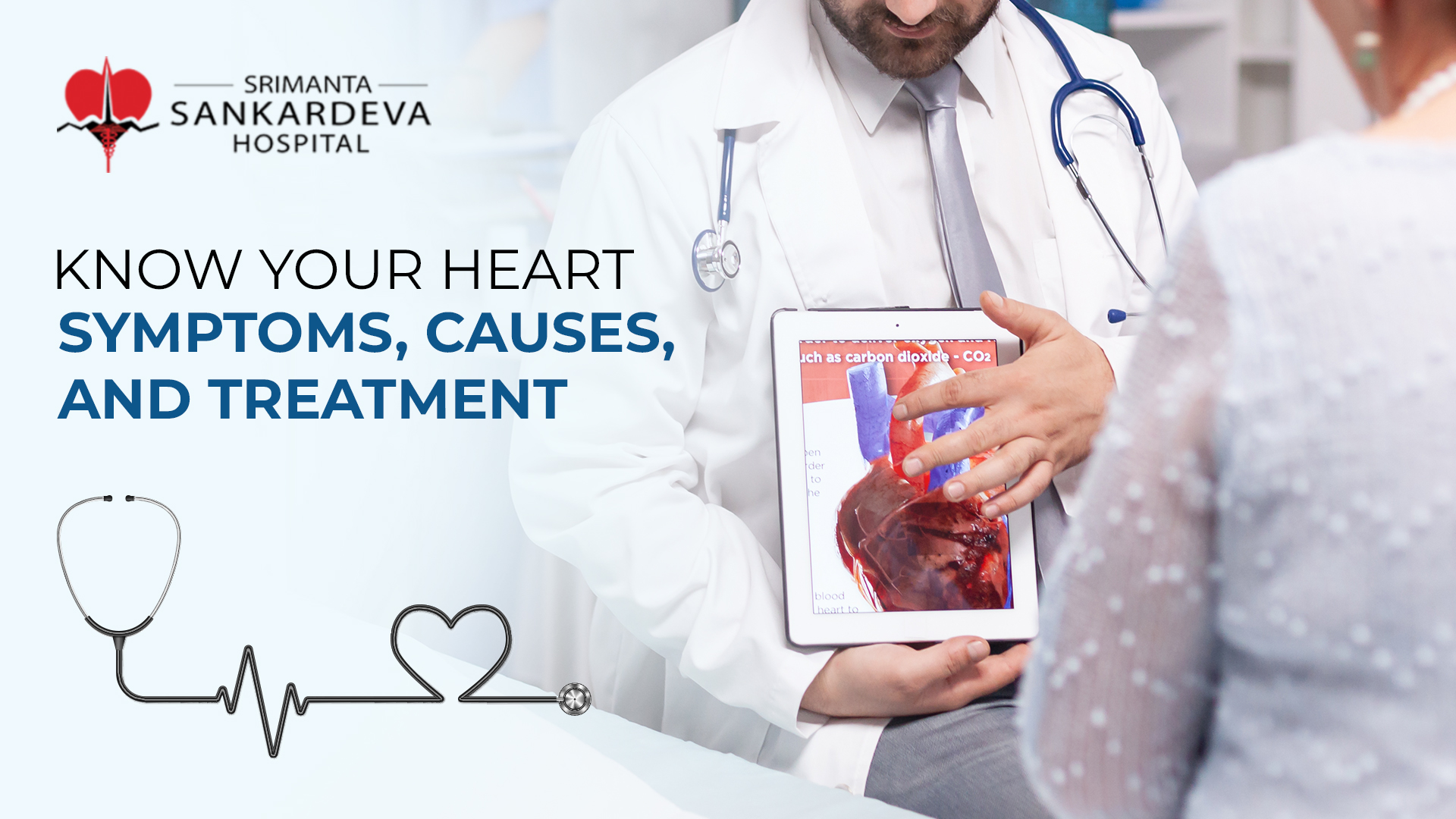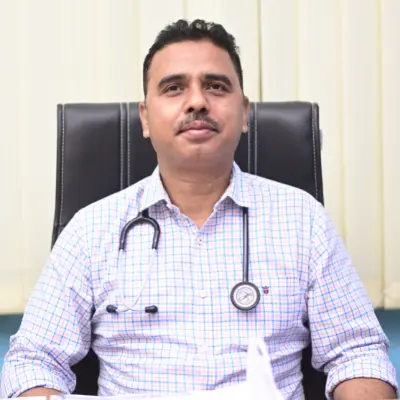Heart conditions are relatively common, but heart health is a leading cause of global health concern. Remembering that heart health is the key to a longer, healthier life, it is essential to take proper action today for a better tomorrow. According to the World Health Organization, cardiovascular diseases are the leading cause of death worldwide, claiming an estimated 17.9 million lives annually. Such alarming numbers highlight the need for awareness about heart health, the importance of early detection, and the need for proactive management techniques. In this blog we have discussed common heart conditions, their symptoms and causes, and available treatment options to help you better deal with them.
Common Heart Conditions
Coronary Artery Disease (CAD)
Coronary artery disease occurs when the arteries responsible for supplying blood to the heart become constricted or narrow, typically due to plaque accumulation in their inner walls.
- Symptoms:Chest pain (angina), fatigue, shortness of breath.
- Causes and risk factors: High cholesterol, obesity, diabetes, and smoking. Also, if you are someone who engages in a poor diet or if you have a family history of the condition, you are more susceptible to CAD.
Arrhythmia
Arrhythmia is a condition that is characterised by irregular rhythms. The condition is caused by irregular heartbeats. This can range from being harmless to causing life-threatening disruptions. The different types of Arrhythmia are:
Types:
- Tachycardia: This occurs when the heart beats faster than 100 beats per minute. This can result from a combination of excessive physical activity, stress or other underlying medical conditions such as anaemia or hyperthyroidism. If the condition persists for a long time, it shall reduce the overall efficiency of the heart, leading to symptoms like palpitations, shortness of breath or severe chest pain.
- Bradycardia: Bradycardia is a low heart rate of fewer than 60 beats per minute. The condition can become severe at one age; therefore, proper medical attention is needed. Symptoms include fatigue, fainting, and dizziness.
- Atrial fibrillation: Atrial fibrillation (AFib) is a chaotic and uncoordinated rhythm in the heart's upper chambers. This condition is a significant risk factor for strokes, leading to irregular blood flow that can cause clots to form. The condition requires long-term management with proper medication.
These conditions have unique characteristics and risks, underscoring the importance of early diagnosis.
Heart failure
Heart failure occurs when the heart cannot pump blood effectively to meet the body's various requirements.
- Symptoms: Persistent fatigue, swelling in legs or abdomen, difficulty breathing, and rapid weight gain due to fluid retention.
- Progression: The progression of heart failure starts as a mild condition but can worsen if left untreated, significantly affecting the quality of life.
Valvular heart diseases
These conditions involve damage or defects in one or more heart valves, affecting blood flow.
- Overview: Valvular heart diseases occur when one or more heart valves malfunction, disrupting the blood flow. These conditions result from ageing, infections, or congenital disabilities, leading to symptoms like chest pain, breathlessness, or fatigue. Timely intervention plays a vital role in managing valvular heart diseases effectively. Treatment options in the early stages allow for more effective management, enhancing overall outcomes and quality of life.
Symptoms to watch out for
These conditions involve damage or defects in one or more heart valves, affecting blood flow.
- Chest pain or discomfort: Chest pain is a common symptom of valvular heart disease. This is generally felt during physical stress. This discomfort may signal that the heart struggles to pump blood effectively due to valve dysfunction. Therefore, it is important to find prompt medical evaluation for the condition.
- Shortness of breath: Difficulty breathing, especially during strenuous activity, is a warning sign of valvular heart disease. Now, if you experience persistent shortness of breath, it should be evaluated by an experienced healthcare provider to determine the cause and begin the appropriate treatment options.
- Irregular heartbeat: An irregular heartbeat, or Arrhythmia, commonly accompanies valvular heart disease. You might feel fluttering or rapidly racing sensations in your chest. Suppose you have a family history of such conditions. In that case, it is important to monitor and visit the doctor for checkups at regular intervals to prevent complications like stroke or heart failure.
- Fatigue and dizziness: Excessive tiredness and light-headed symptoms are other valvular heart disease symptoms. These symptoms result from inadequate blood flow to the body and brain due to valve inefficiencies. They can significantly impact daily activities and quality of life, making seeking medical attention for accurate diagnosis and management essential.
Causes and risk factors
Lifestyle-related causes: Smoking, sedentary habits, diet.
Genetic predisposition.
Chronic conditions like diabetes and hypertension.
Treatment options
- Medications: Medications play a vital role in managing valvular heart disease. Each type is tailored to address specific symptoms or complications, relieving and stabilising heart performance. Some of them include. Diuretics reduce fluid buildup, beta-blockers and ACE inhibitors improve heart function, and anticoagulants prevent blood clots.
- Surgical interventions: In severe cases, surgery is often necessary. Surgical procedures include angioplasty which uses stents to restore blood flow in the blocked arteries. Another surgery is Bypass surgery, which reroutes blood around clogged arteries and improves circulation. Valve repair or replacement addresses the valve dysfunction, thereby enhancing heart efficiency. All of these procedures offer long-term solutions for restoring normal cardiac function.
- Lifestyle modifications: Adopting heart-healthy habits is crucial in managing and preventing progression. This includes a balanced diet, regular exercise, healthy weight, and avoiding smoking or excessive alcohol. Stress management through relaxation techniques also supports heart health, complementing medical treatments.
- Role of cardiac rehabilitation programs: Cardiac rehabilitation programs provide personalised care to enhance recovery and overall heart health. These programs combine supervised exercise, nutrition counselling, and education on managing risk factors. They help patients rebuild strength, reduce symptoms, and prevent future complications, ensuring a better quality of life post-treatment.
Conclusion
Early detection and treatment significantly improve the prognosis of valvular heart diseases, reducing the risk of severe complications and enhancing quality of life.
Remember, if you ever have symptoms, consult a healthcare professional promptly to ensure accurate diagnosis and effective care.



